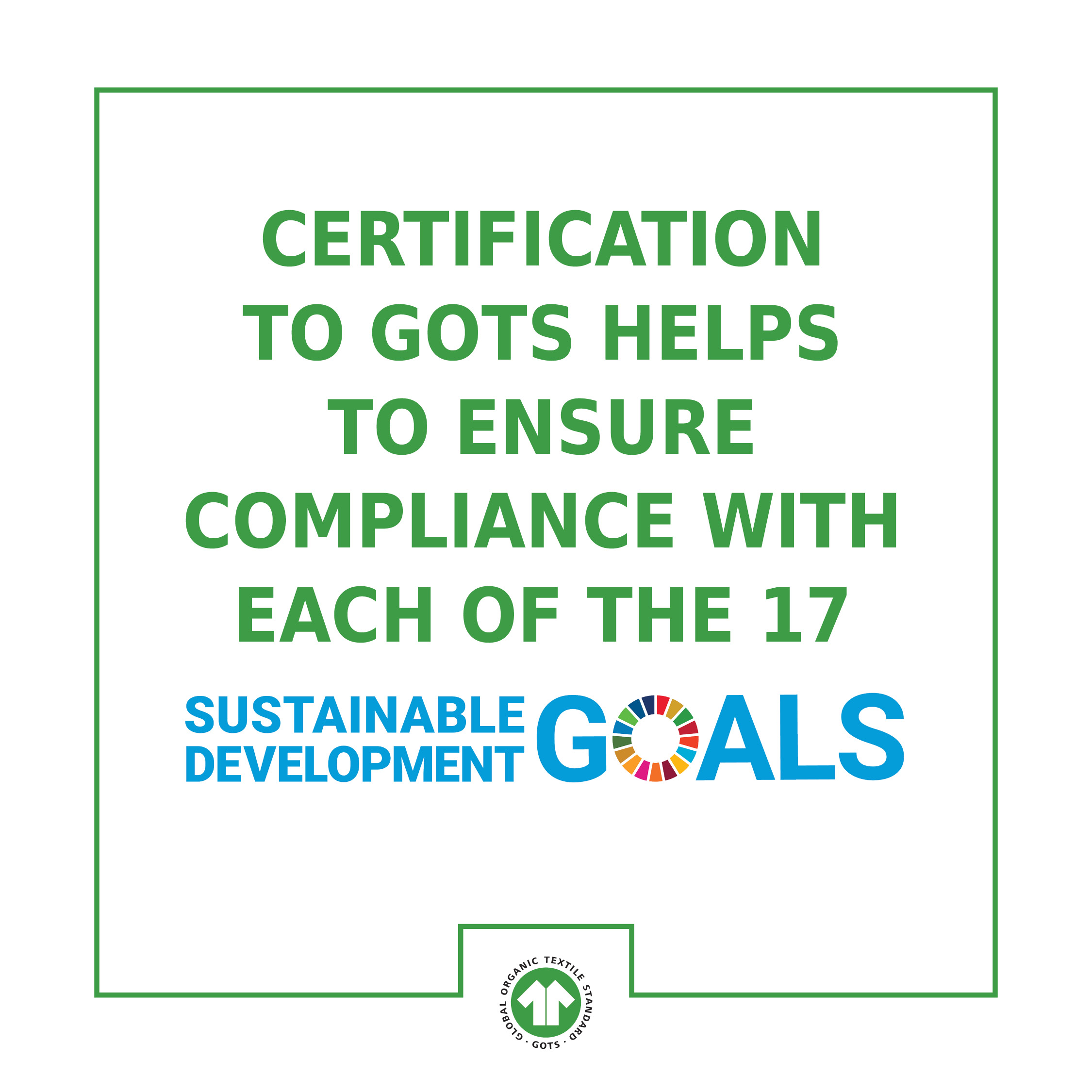Philosophy
Vision
Our vision is a world where all textiles are produced in accordance with the principles of health, ecology, fairness and care to enhance people’s lives and the environment. Organic textiles are an integral part of this holistic approach.
Mission
Our mission is to ensure the highest level of social and environmental impact in textile value chains through voluntary sustainability standards and related activities.
We fulfil our mission by development, implementation, verification, protection, and promotion of global Voluntary Sustainability Standards (VSS) for textiles. Based on our successful Global Organic Textile Standard (GOTS) system and amplifying impact, these standards stipulate requirements throughout the supply chain for ecological, human rights including social criteria and business conduct in textile and apparel manufacturing. We define sustainable materials and practices based on robust scientific findings, ensuring our standards are credible, effective and impactful.
Development and Implementation
In developing our VSS, we set strict – and binding – requirements regarding ecological, human rights, social and business conduct including governance criteria. These criteria shall be implemented through due diligence processes. In doing so, we consider the need for standards that are practical for industrial production and appropriate for a wide range of products. We define sustainable textiles as containing a substantial minimum content of sustainable fibres, being processed with the least possible environmental impact, under strict controls on natural and synthetic chemical inputs.
Our VSS are dynamic; we foster constant progress towards the development of better textile processing methods. In this process of continuous improvement, we collaborate with international stakeholders, including the textile and apparel industry, chemical suppliers, sustainable fibre production and environmental organisations, regulators, workers' rights groups, and labour unions. We believe that VSSs, set in partnership with international stakeholder communities, ensure widespread global acceptance.
Through our Monitoring and Evaluation system we systematically assess and demonstrate our standards’ effectiveness in achieving intended sustainability outcomes.
In contrast to mere national laws, our standards provide a consistent and global framework and help to overcome barriers to international trade. Likewise, they facilitate their users’ compliance with legal requirements and even empower them to prove their ability to exceed those.
The implementation of our VSS reconciles the need of the textile industry with consumers' desire for transparency. The increasing worldwide recognition and acceptance of our VSS confirm that these needs are being met.
We continue to work to ensure that our global standards satisfy the expectations of all stakeholders.
Verification
A standard is only as effective as it is credible. In addition to trust, verification is crucial for building credibility. We entrust verification only to selected professional and independent certification bodies. These certification bodies regularly audit all parties involved in the manufacturing of textiles certified to our VSS through comprehensive on-site inspections to verify that all standard requirements are met.
In order to further protect GOTS' credibility, we investigate and impose sanctions whenever there is evidence of misleading use of the GOTS label or reference to GOTS certification.
Protection
To further protect the credibility of our VSS, we investigate and impose sanctions whenever there is evidence of misleading use of our labels, references to certification and fraud
Promotion
As a global network, we have representatives working to promote our VSS around the world. Our team works with mutual respect, understanding, and trust; together we achieve solutions.
Respect for both people and the environment drives us.
Our organisation minimises administrative costs. As a registered non-profit, our programmes are self-financed. All income is used to reach our vision and mission.
Aim
The aim of the standard is to define world-wide recognised requirements that ensure the certified organic status of textiles, from the harvesting of the raw fibre, through environmentally and socially responsible manufacturing up to labelling in order to provide credible assurance to the end consumer. Textile processors and manufacturers are thus enabled to export their organic fabrics and garments with one certification accepted in all major markets.
Sustainable Development
We see ourselves as contributing to sustainable development. Certification to GOTS helps to ensure compliance with each of the 17 UN Sustainable Development Goals, and actively cooperating with all relevant stakeholders.
Our organisation maintains a flat structure and aims to minimise administrative costs. As registered non-profit the GOTS programme is self-financed. All income is used to reach our vision and mission.


